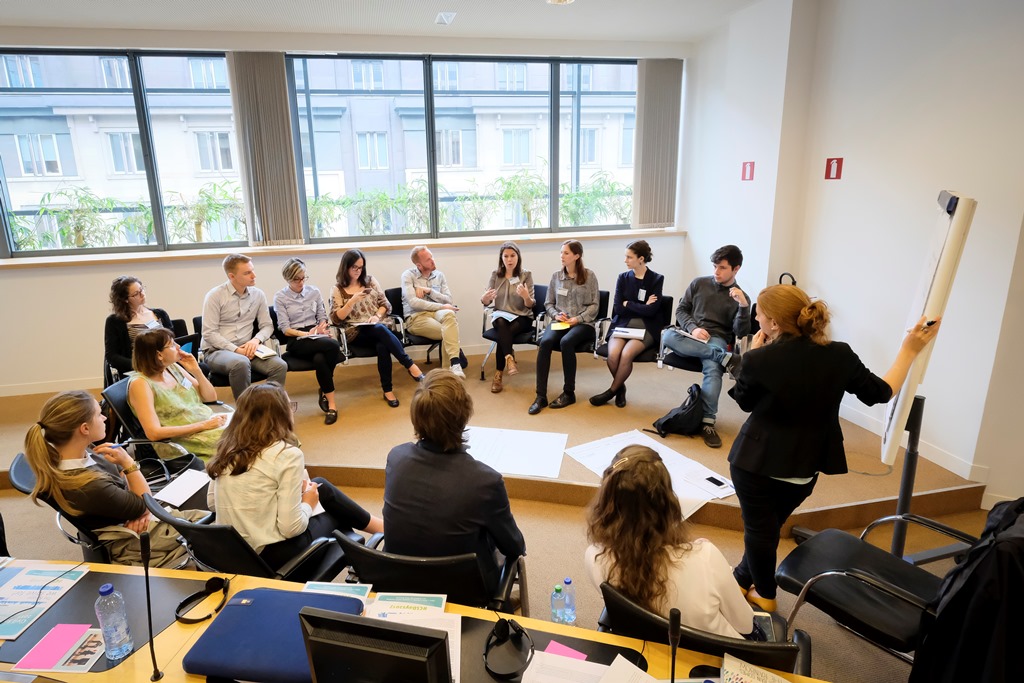The EU must lead by example in protecting civil society

What would be missing, for people, if civil society organisations weren’t around? This is the question we asked participants in our workshop on how to empower civil society to act and grow in Europe during the 2017 Civil Society Days in Brussels. One person answered that we would end up with “a big farm of vulnerable sheep with no watchdog or protection”, in other words we voice the concerns of people, including those left behind and not heard (click here to see more responses).
The general perception of activists and civil society leaders is that our space to carry out our duties is shrinking. Some barriers identified by a survey conducted by Civil Society Europe were restrictions and conditions on access to funding, and smear campaigns by the media and politicians, such as those we have witnessed in Poland against organisations critical of the governments, and in Romania against organisations that have been funded in the past by George Soros’ Open Society Foundation.
While the space for civil society is not necessary shrinking in each Member State, it is indeed changing across the whole of Europe. The EU Agency for Fundamental Rights has started mapping civil society’s space in the EU, but to better understand what is going on we need more evidence and data on incidents of attacks and intimidation against civil society organisations and actors. Finding solutions to such problems will require looking into each country’s circumstances individually – an approach supported by the European Centre for Non-Profit Law.
So what can we do to empower ourselves?
One answer identified during our workshop was to learn from action the EU has taken outside its own borders. There is an EU external framework and action plan in place that helps to support civil society in third-countries, including an emergency fund for human rights defenders at risk that can be activated in a crisis. Foreign Affairs Ministers have also adopted Council Conclusions on the role of civil society – an important political signal of solidarity that we would like to see expressed for EU civil society organisations, too. We can also learn from other civil society movements how we can better prevent and protect ourselves from intimidation, harassment and violence, something our peers outside the EU have a lot more experience of.
Another answer is to grow and build momentum in our own local communities for the rights we defend through alliances and partnerships with different stakeholders – a move strongly supported by our member ILGA-Europe, which promotes the rights of lesbian, gay, bi, trans and intersex people. A vital part of this process is ensuring that civil society organisations are leading by example by prioritising the wellbeing of staff and volunteers who may be subject to traumatic experiences and discrimination..
Raising awareness of restrictions and barriers to freedom of assembly and association, as well as the right to participation is one more solution put forward during our workshop. Such barriers may intentionally or unintentionally affect civil society. In any case, we need to pay attention and gather evidence to make our case legally, politically and publicly. The fact that our workshop had one of the highest attendance rates at the Civil Society Days shows the real and urgent concerns of many. Coming together in a participatory space, sharing experiences and good practices, brought out new ideas on how to approach decision-makers and empower ourselves – including through being more vocal about our added-value! Federica Mogherini, High Representative of the EU for Foreign Affairs and Security Policy, opened the Civil Society Days by reminding us that, ”the world is looking to the EU as a solid partner… to strengthen the EU system and uphold humanitarian law and protect rights.” If EU leaders cannot protect and promote civil society within the Union itself, it will undermine our credibility to be that global leader we are expected to be.
Read more
- “Four steps to empower civil society organisations to participate” (EurActiv)
- “Civil society groups seek new tools to tackle populism” (EurActiv)
- “EU human rights chief: Civil society will push back the rise of extremism” (EurActiv)
- “Preventing shrinking space for civil society organisations in the EU” (our blog post)
- “For whom the civic space is shrinking” (our blog post)













































